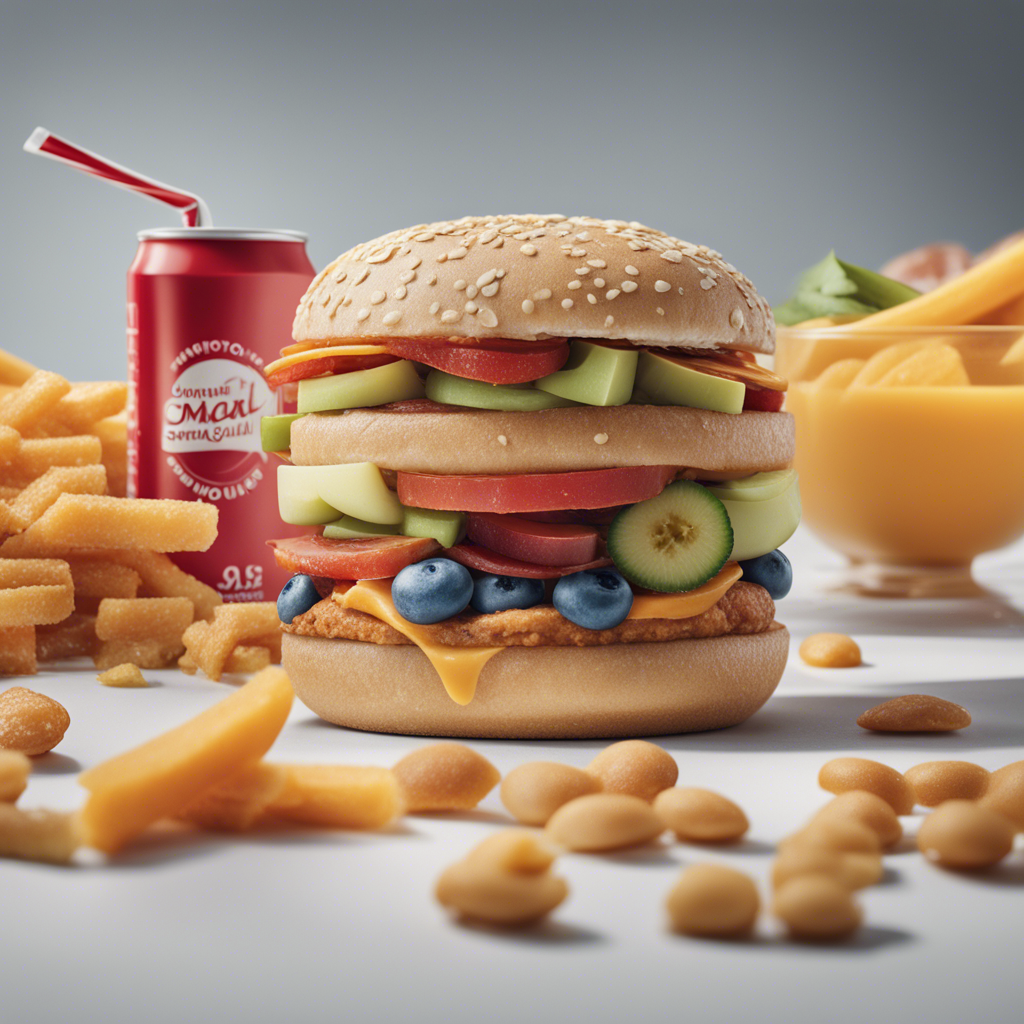Smart Snacking: How to Curb Cravings Without Guilt
Introduction to Smart Snacking
In today’s fast-paced world, snacking has become an integral part of our daily routine. Whether it’s reaching for a quick bite between meals or indulging in something sweet to beat an afternoon slump, snacks have the power to either make or break our dietary habits. The challenge lies in making sure that our snacking does not lead us to unwanted weight gain or guilt.

Embracing smart snacking is about finding the balance between satisfying our cravings and maintaining a healthy lifestyle. This approach not only aids in curbing cravings but also helps in controlling appetite, which is essential for effective weight management. With an emphasis on choosing nutritious snacks, individuals can enjoy guilt-free snacking while avoiding common weight loss mistakes.
Understanding the Basics of Smart Snacking
What is Smart Snacking?
Smart snacking refers to the careful selection of snacks that complement a healthy diet plan rather than derail it. Unlike traditional snacking that often includes high-calorie, processed foods, smart snacking focuses on nutrient-rich choices that provide energy, fiber, and essential nutrients without excess calories.
The foundation of smart snacking is selecting foods that are not only tasty but also align with one’s dietary goals. This means paying attention to portion sizes, nutrient content, and the timing of snacks. By doing so, individuals are less likely to succumb to eating out of boredom or stress, which can lead to unhealthy habits.
The Role of Portion Control
One of the weight loss mistakes to avoid is underestimating the importance of portion control. Even healthy snacks, if consumed in large quantities, can contribute to caloric surplus. Smart snacking emphasizes moderate portions that satisfy hunger without leading to overconsumption. For instance, a handful of nuts or a small bowl of Greek yogurt with berries can keep hunger at bay while controlling calories.
To effectively incorporate portion control, it is beneficial to pre-portion snacks. This could mean using small containers or bags to hold individual servings, which can prevent mindless snacking directly from a large package. It is a practical application that ensures a balance between nourishment and enjoyment.
Nutrient-Rich Snack Examples
Embracing nutritious snacks doesn’t mean sacrificing flavor or satisfaction. There is a variety of delicious options that fulfill the smart snacking philosophy. For example, almond butter paired with apple slices offers a satisfying sweet and savory snack rich in healthy fats and antioxidants. Vegetables like carrots and bell peppers dipped in hummus provide crunch and flavor, while also supplying fiber and healthy proteins.
Other smart snacking options include whole-grain crackers with avocado, hard-boiled eggs with sliced veggies, or homemade energy bars devoid of preservatives and excess sweets. Each of these examples underscores the principle of incorporating natural, minimally processed foods into one’s diet.
Strategies to Curb Cravings Without Guilt
Identify Your Cravings
Curbing cravings starts with understanding their source. Often, cravings arise not from physical hunger but emotional or psychological needs. It is critical to identify whether you’re craving a snack due to stress, boredom, or actual need for nourishment. This awareness can significantly impact the choice of snack you make.
Once you’ve identified the reason, you can tailor your approach to satisfy that craving with a healthier option. For instance, if stress is pushing you towards sugary snacks, opting for dark chocolate or a smoothie with natural sweeteners can fulfill the desire without the guilt.
Timing Your Snacks
An effective smart snacking tactic is to time your snacks strategically. Eating at regular intervals can help regulate blood sugar levels and prevent extreme hunger, which often leads to overeating. This is crucial for maintaining energy levels and focus throughout the day.
Try integrating snacks between meals at times when energy dips are common, such as the mid-morning or late afternoon. Snacks like mixed nuts or yogurt with granola can provide a slow-releasing energy boost that sustains you until the next meal.
Mindful Eating Practices
Mindful eating is indispensable in practicing smart snacking. It involves being fully aware of your snacking habits and making intentional choices. By savoring each bite, slowing down, and enjoying the textures and flavors, you can enhance satisfaction and reduce the tendency to snack excessively.
One way to implement mindful eating is to eliminate distractions like screens during snack time. Instead, focus on the act of eating and appreciate the food’s contribution to your health and well-being. This not only curbs cravings in the moment but fosters a healthier long-term relationship with food.

FAQ on Smart Snacking
What are some quick and healthy snack ideas?
Quick and healthy snack ideas include a small handful of almonds, a piece of fruit paired with a slice of cheese, or whole-grain toast with avocado. These options are nutritious, satisfying, and can be prepared in minutes, making them perfect for a busy schedule.
How can I control my cravings for sweet snacks?
Controlling cravings for sweet snacks can be managed by opting for natural sugars found in fruits, which also provide fiber and vitamins. You may also indulge in a piece of dark chocolate or a homemade fruit parfait with yogurt and honey. These alternatives satisfy sweet desires while maintaining a healthy diet.
Is snacking essential for weight loss?
While snacking isn’t essential for everyone, it can be a vital component of a successful weight-loss plan for those who find themselves hungry between meals. Healthy snacks can prevent overeating and help maintain consistent energy levels. For those prone to hunger pangs, smart snacking can support a more sustainable and satisfying diet.
What should I avoid while choosing snacks?
While choosing snacks, it is wise to avoid highly processed foods containing artificial sweeteners, trans fats, and high levels of salt and sugar. These can contribute to health issues and derail your dietary goals. Opt instead for whole, minimally processed foods that offer genuine nutritional benefits.
Can snacking influence my appetite control?
Yes, snacking can significantly influence appetite control. By choosing the right snacks at strategic times, you can stabilize your energy levels and prevent unexpected hunger. Incorporating fiber-rich foods like vegetables and whole grains into snacks can enhance satiety and regulate appetite effectively.
Conclusion: Embrace Guilt-Free Snacking
Smart snacking is an empowering approach to daily eating habits, allowing individuals to enjoy their favorite snacks without guilt. By prioritizing nutritious snacks and practicing techniques such as portion control and mindful eating, one can effectively curb cravings and maintain weight goals.
The key to successful smart snacking lies in understanding and addressing the body’s true needs while remaining mindful of potential weight loss mistakes to avoid. With an array of healthy snacks at your disposal, you can navigate cravings confidently and build a healthier lifestyle.
As you continue your journey towards guilt-free snacking, remember to be patient and flexible. Adjusting eating habits takes time, and exploring different snack ideas to find what best satisfies your cravings can result in lasting healthy habits.
Consider exploring video content on these topics:
- “Wholesome Snack Prep Ideas for a Busy Week”
- “Mindful Eating Techniques: Transform Your Snacking Habits”
- “Understanding Cravings: The Science Behind Your Snack Choices”


